11 Best Herbal Tinctures For Altitude Sickness
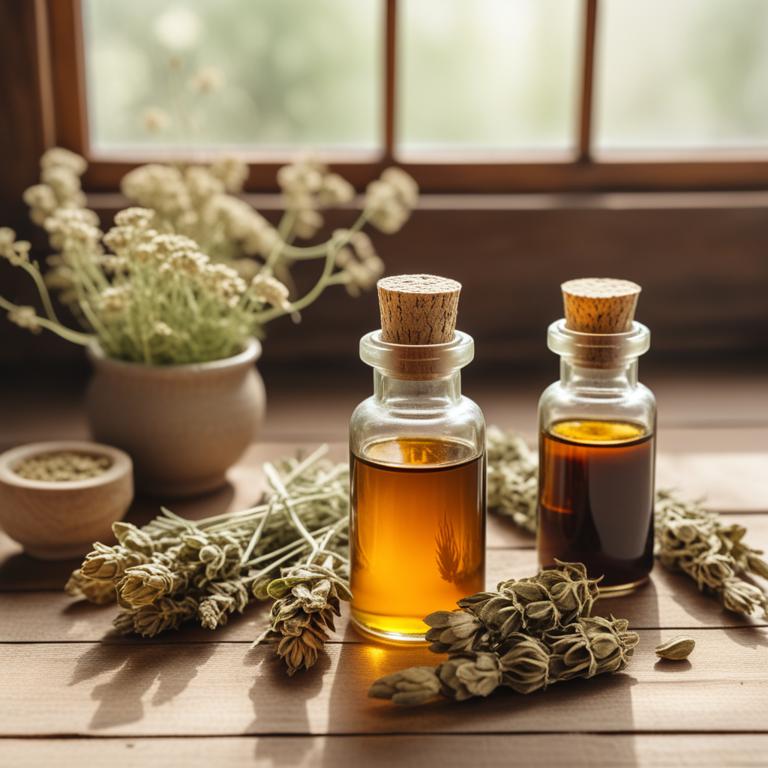
Herbal tinctures for Altitude sickness are concentrated plant extracts used to alleviate the symptoms of high-altitude exposure, such as headaches, fatigue, and nausea.
These tinctures are beneficial in treating altitude sickness as they help to increase oxygen flow to the body, reduce inflammation, and promote relaxation.
Examples of herbal tinctures that can be used to treat altitude sickness include Andean mint, which helps to ease breathing and reduce nausea, Rhodiola, which increases mental clarity and reduces fatigue, and Ginkgo biloba, which improves blood flow and reduces inflammation.
Additionally, other herbal tinctures such as Ashwagandha, Ginseng, and Echinacea can also be used to help the body adapt to high altitudes and reduce the severity of altitude sickness symptoms.
According to "Phytomedicine : international journal of phytotherapy and phytopharmacology", tinctures for altitude sickness using extracts from Arenaria kansuensis, specifically those containing pyrocatechol and tricin 7-O-β-d-glucopyranoside, may be effective in alleviating symptoms by prolonging survival time and enhancing red blood cell count and hemoglobin concentration.
Below there's a list of the 11 best herbal tinctures for altitude sickness.
- 1. Cinchona officinalis tinctures
- 2. Ginkgo biloba tinctures
- 3. Corydalis ambigua tinctures
- 4. Schisandra chinensis tinctures
- 5. Rauvolfia serpentina tinctures
- 6. Valeriana officinalis tinctures
- 7. Astragalus membranaceus tinctures
- 8. Withania somnifera tinctures
- 9. Rosmarinus officinalis tinctures
- 10. Vitis vinifera tinctures
- 11. Curcuma longa tinctures
Also you may be interested in...
TODAY'S FREE BOUNDLE
Herb Drying Checklist + Herbal Tea Shopping List + Medicinal Herbs Flashcards
Enter you best email address below to receive this bundle (3 product valued $19.95) for FREE + exclusive access to The Aphotecary Letter.
$19.95 -> $0.00
1. Cinchona officinalis tinctures

Cinchona officinalis tinctures, a herbal preparation derived from the bark of the Cinchona tree, have been traditionally used to treat altitude sickness, also known as acute mountain sickness (AMS).
The properties of this tincture, including its high quinine content and alkaloid profile, help to alleviate the symptoms of AMS by reducing inflammation and improving circulation.
The bioactive constituents of Cinchona officinalis, such as quinine, quinidine, and cinchonine, have been shown to help reduce the severity of AMS by lowering blood pressure and improving oxygen delivery to the body's tissues.
By using Cinchona officinalis tinctures, individuals can benefit from a natural and effective treatment for altitude sickness, allowing them to safely and comfortably navigate high-altitude environments.
2. Ginkgo biloba tinctures

Ginkgo biloba tinctures have been traditionally used to treat altitude sickness, a condition characterized by headaches, dizziness, and nausea at high elevations.
The anti-inflammatory and antioxidant properties of this herbal preparation help to reduce inflammation and oxidative stress, which contribute to altitude sickness.
The bioactive constituents of Ginkgo biloba, including flavonoids and terpenoids, such as quercetin and bilobalide, help to improve blood flow and reduce symptoms of altitude sickness, including headaches and shortness of breath.
By using Ginkgo biloba tinctures, individuals can alleviate the symptoms of altitude sickness and enjoy a safer and more enjoyable experience at high elevations.
Related Study
According to the study, Ginkgo biloba tinctures for altitude sickness have been shown to exhibit therapeutic activity in preventing altitude sickness due to their potent antioxidant properties and ability to enhance peripheral and cerebral circulation.
3. Corydalis ambigua tinctures
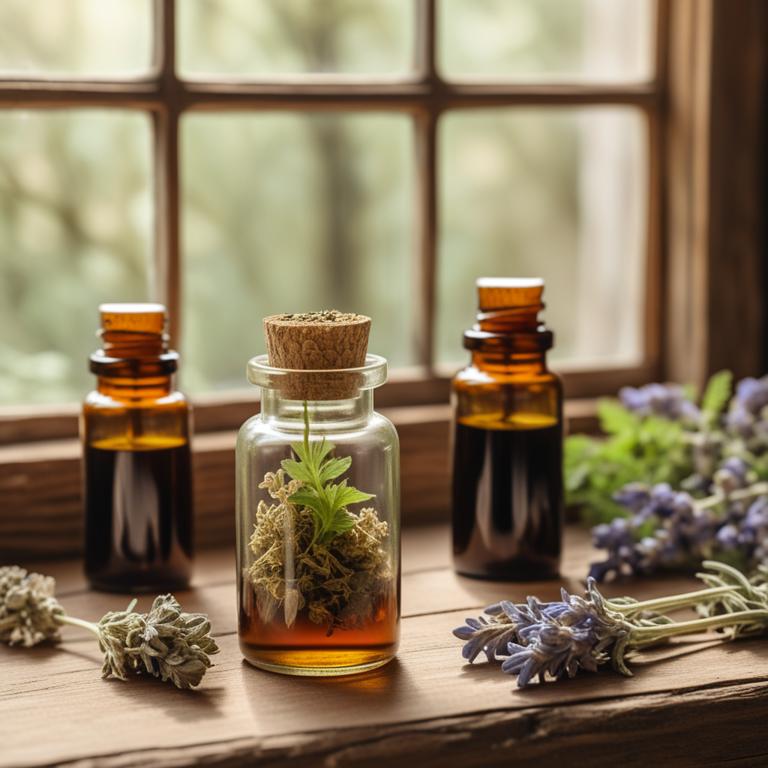
Corydalis ambigua tinctures have been traditionally used to treat altitude sickness, a condition caused by low oxygen levels at high elevations.
The properties of this herbal preparation, including its analgesic, anti-inflammatory, and vasodilatory effects, help to alleviate the symptoms of altitude sickness, such as headaches and shortness of breath.
The bioactive constituents of Corydalis ambigua tinctures, including tetrahydroprotoberberine alkaloids and berberine, have been shown to help reduce inflammation and improve blood flow, which helps to mitigate the effects of altitude sickness.
The benefits of using Corydalis ambigua tinctures to treat altitude sickness include rapid relief from symptoms, reduced risk of high-altitude pulmonary edema, and a natural, non-invasive approach to managing this condition.
4. Schisandra chinensis tinctures
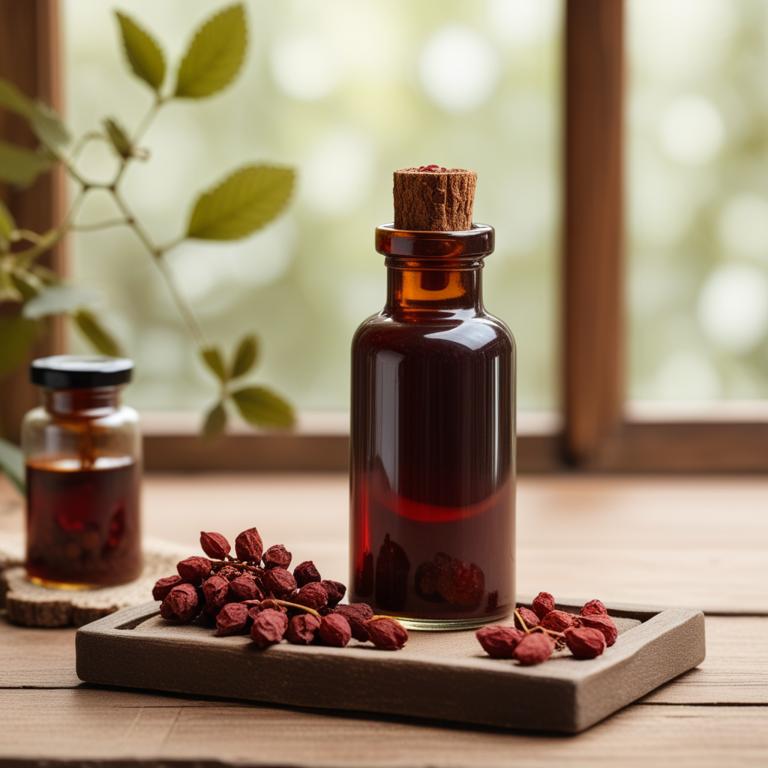
Schisandra chinensis tinctures have been traditionally used to treat altitude sickness due to their adaptogenic properties, which help the body adapt to high altitudes and reduce the severity of symptoms.
The bioactive constituents present in this herbal preparation, including schisandrins, lignans, and polysaccharides, have been found to improve cardiovascular function, enhance oxygen delivery, and reduce inflammation, thereby alleviating the symptoms of altitude sickness.
By promoting the production of antioxidants and anti-inflammatory compounds, Schisandra chinensis tinctures help to protect the body from the oxidative stress and inflammation associated with high-altitude exposure.
The benefits of using Schisandra chinensis tinctures to treat altitude sickness include improved physical performance, reduced fatigue, and enhanced overall well-being, making it a valuable natural remedy for individuals who engage in high-altitude activities.
5. Rauvolfia serpentina tinctures
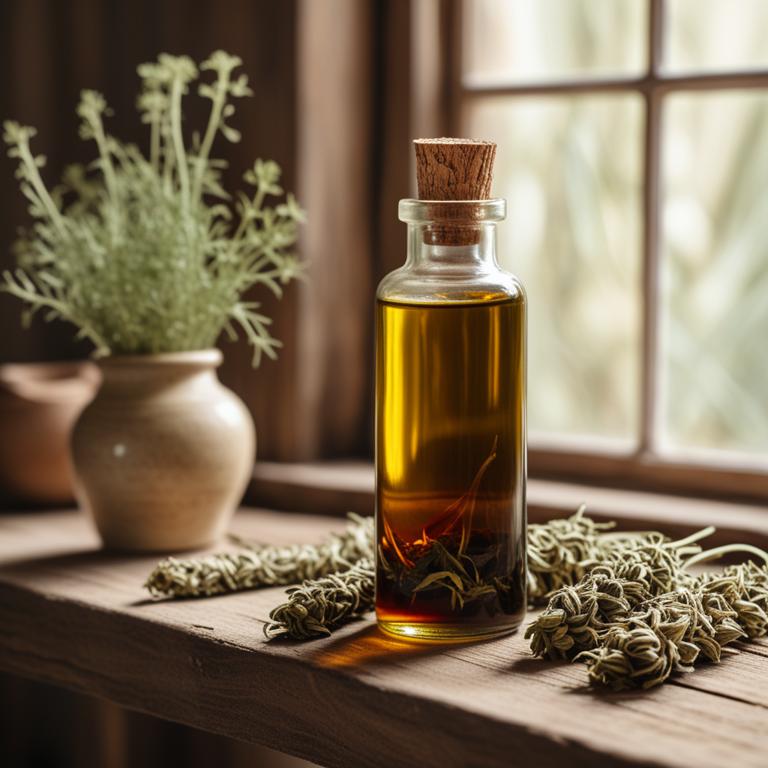
Rauvolfia serpentina tinctures have been traditionally used to treat altitude sickness due to their adaptogenic and anti-inflammatory properties.
The tinctures help to alleviate the symptoms of altitude sickness by improving blood circulation, reducing oxidative stress, and promoting the body's natural adaptation to high altitudes.
The bioactive constituents of Rauvolfia serpentina, including alkaloids such as reserpine and ajmaline, help to reduce blood pressure, improve respiratory function, and increase the production of red blood cells, making it an effective herbal remedy for treating altitude sickness.
The benefits of using Rauvolfia serpentina tinctures to treat altitude sickness include rapid relief from symptoms, reduced risk of complications, and a natural and non-invasive approach to managing altitude-related health issues.
6. Valeriana officinalis tinctures
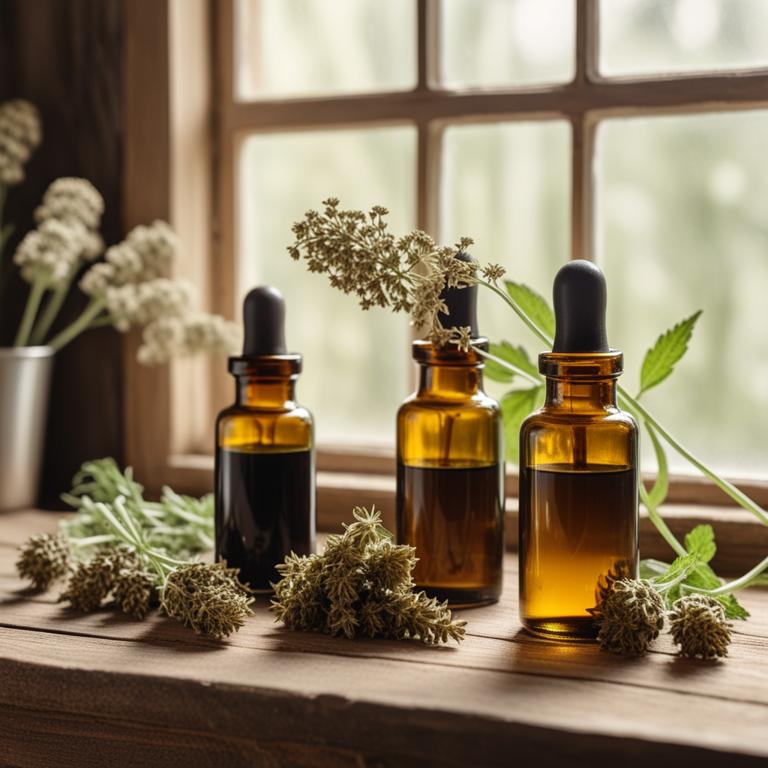
Valeriana officinalis tinctures have been traditionally used to alleviate symptoms of altitude sickness, a condition characterized by headaches, nausea, and fatigue at high elevations.
The valerenic acid and valepotriates present in Valeriana officinalis tinctures exhibit sedative and anti-anxiety properties, which help to calm the nervous system and reduce stress, thereby mitigating the discomfort associated with altitude sickness.
The bioactive constituents, including valerenic acid and valepotriates, contribute to the tincture's ability to regulate sleep patterns, alleviate anxiety, and ease muscle tension, making it a potential natural remedy for altitude sickness.
By using Valeriana officinalis tinctures, individuals can experience relief from the symptoms of altitude sickness, including headaches, nausea, and fatigue, and enjoy the added benefits of improved sleep quality and reduced anxiety.
7. Astragalus membranaceus tinctures
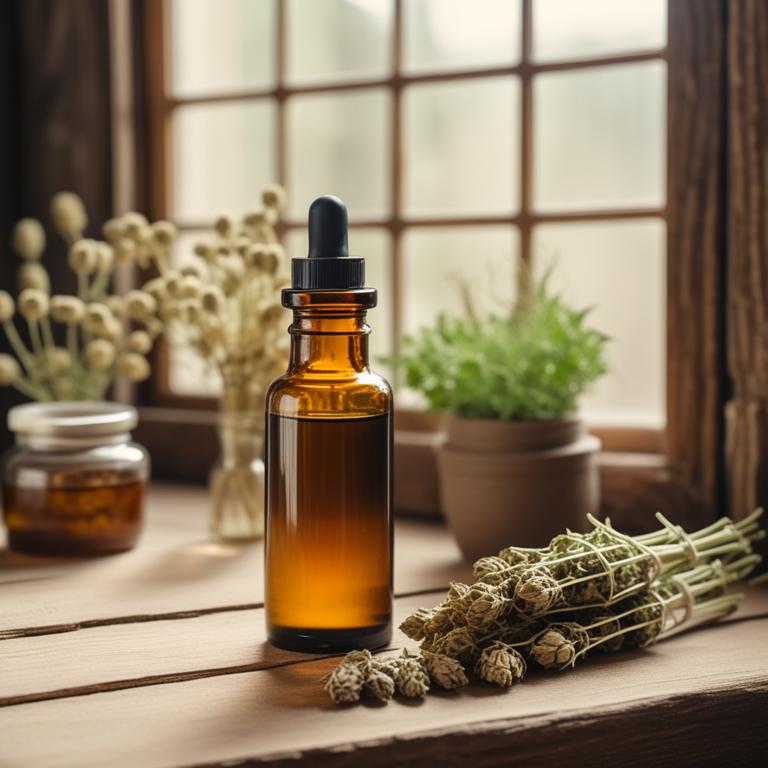
Astragalus membranaceus tinctures have been traditionally used to treat altitude sickness due to their adaptogenic and anti-inflammatory properties.
These herbal preparations help to alleviate symptoms of altitude sickness by promoting oxygenation of the body, reducing oxidative stress, and improving cardiovascular function.
The bioactive constituents of Astragalus membranaceus, including flavonoids, saponins, and polysaccharides, are responsible for its therapeutic effects in treating altitude sickness.
By using Astragalus membranaceus tinctures, individuals can benefit from improved tolerance to high altitudes, reduced risk of acute mountain sickness, and enhanced overall well-being.
8. Withania somnifera tinctures
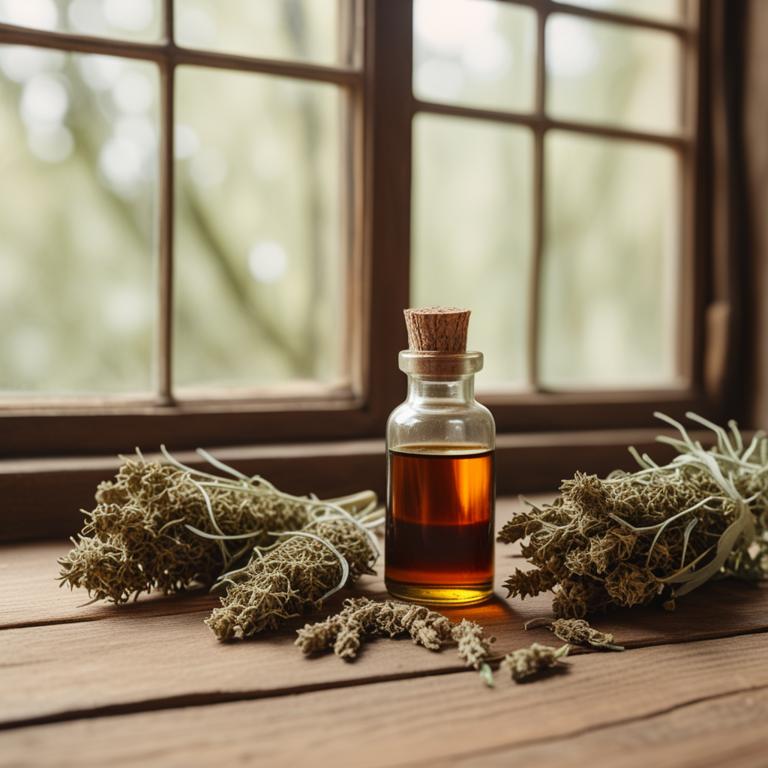
Withania somnifera tinctures have been traditionally used to alleviate the symptoms of altitude sickness, a condition characterized by headaches, fatigue, and shortness of breath at high elevations.
The adaptogenic properties of this herbal preparation help to mitigate the physiological effects of high altitude, while its antioxidant and anti-inflammatory properties aid in reducing oxidative stress and inflammation associated with the condition.
The bioactive constituents of Withania somnifera, including withanolides and alkaloids, play a crucial role in its efficacy against altitude sickness by modulating the body's response to stress and promoting overall well-being.
The benefits of using Withania somnifera tinctures to treat altitude sickness include improved respiratory function, reduced risk of acute mountain sickness, and enhanced physical performance at high elevations.
9. Rosmarinus officinalis tinctures
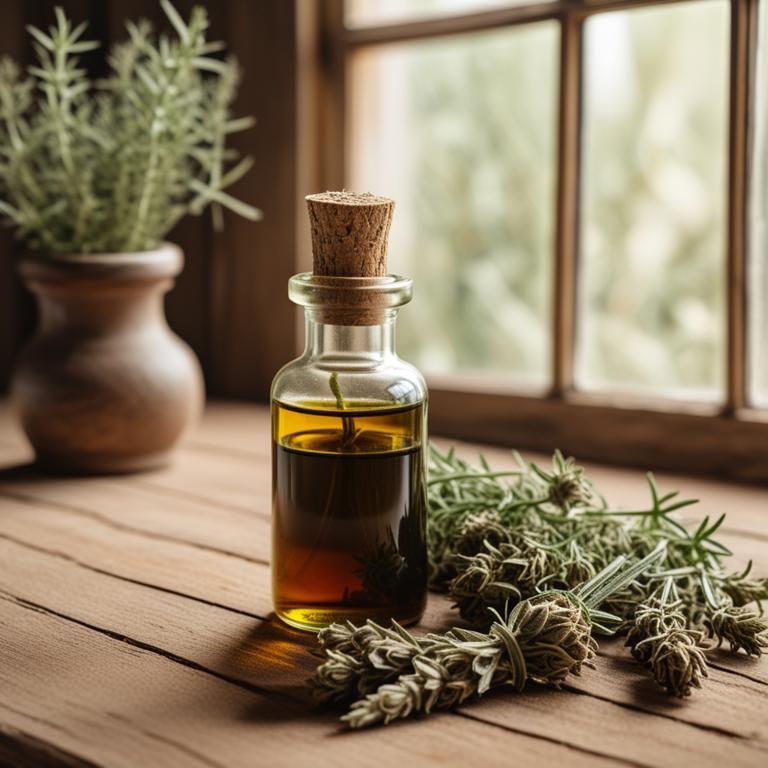
Rosmarinus officinalis tinctures have been traditionally used to treat altitude sickness due to their vasodilatory and anti-inflammatory properties, which help to improve blood flow and reduce swelling in the body.
The bioactive constituents of Rosmarinus officinalis, including carnosic acid and rosmarinic acid, have been found to have antioxidant and anti-inflammatory effects that contribute to its therapeutic benefits in treating altitude sickness.
By reducing inflammation and improving blood flow, Rosmarinus officinalis tinctures help to alleviate symptoms such as headaches and fatigue associated with altitude sickness, ultimately reducing the risk of more severe conditions.
The benefits of using Rosmarinus officinalis tinctures to treat altitude sickness include reduced recovery time, improved oxygenation, and a lower risk of altitude-related illnesses.
10. Vitis vinifera tinctures
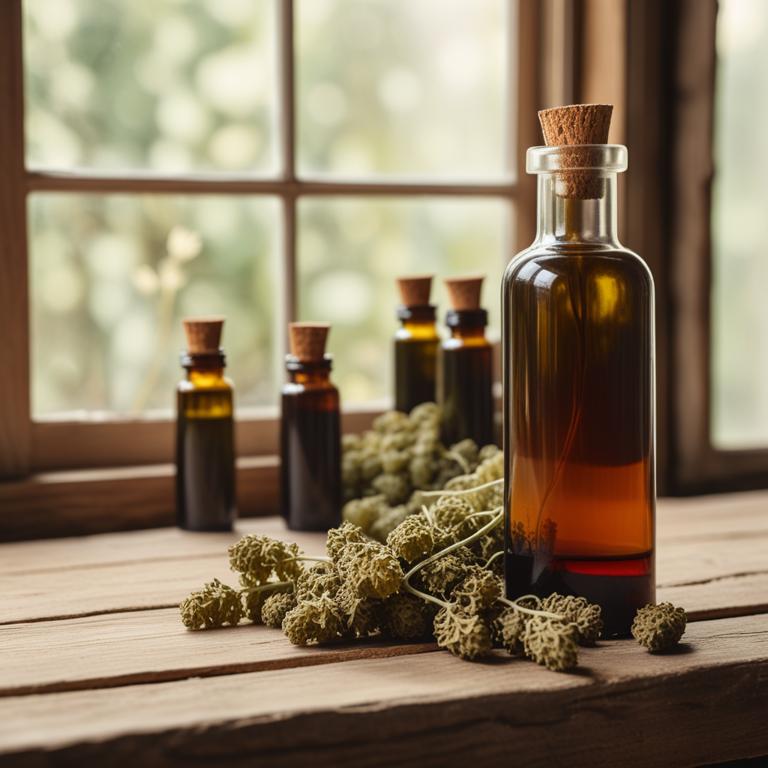
Vitis vinifera tinctures have been traditionally used to treat altitude sickness due to their properties that help to alleviate symptoms such as headaches and fatigue.
The herbal preparation is believed to help treat this ailment by increasing blood flow and improving oxygenation of the body's tissues.
The bioactive constituents of Vitis vinifera, including flavonoids and polyphenols, may contribute to its therapeutic effects by reducing inflammation and improving cardiovascular function.
By using Vitis vinifera tinctures, individuals may benefit from reduced symptoms and improved overall well-being while traveling to high-altitude areas.
11. Curcuma longa tinctures

Curcuma longa tinctures have been traditionally used to treat altitude sickness, an ailment caused by low oxygen levels at high elevations.
The bioactive constituents of Curcuma longa, including curcumin, demethoxycurcumin, and bisdemethoxycurcumin, possess potent anti-inflammatory and antioxidant properties that help to alleviate the symptoms of altitude sickness.
By reducing inflammation and oxidative stress, Curcuma longa tinctures may help to mitigate the effects of high altitude on the body, including headaches, nausea, and fatigue.
The benefits of using Curcuma longa tinctures to treat altitude sickness include reduced symptoms, improved physical performance, and faster recovery times, making it a valuable herbal preparation for individuals who venture to high-altitude regions.